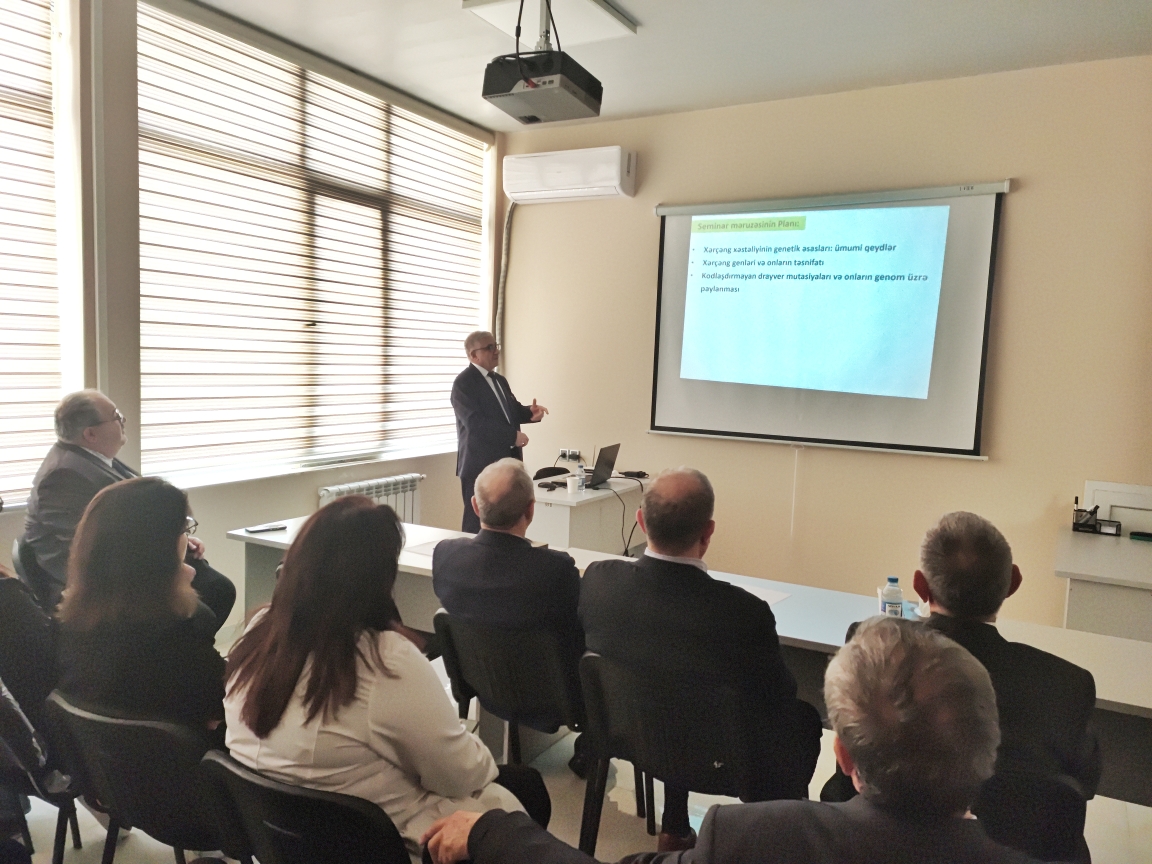
A scientific seminar on "Non-coding driver mutations of cancer" was held at the Institute of Biophysics of the Ministry of Education and Science of the Republic of Azerbaijan.
The opening remarks of the seminar were delivered by the head director of the institute, corresponding member of the Azerbaijan National Academy of Sciences (ANAS), Oktay Qasimov, who welcomed the participants and noted the significant interest in the topic of the event.
Then, the head of the Integrative Biology Laboratory of the Institute of Biophysics, corresponding member of ANAS, PhD Ilham Shahmuradov, gave a speech touching upon several aspects including "Cancer genes and their classification," "Non-coding driver mutations and their distribution in the genome," and "Promoter mutations and cancer disease." He noted that "mutations in genes/chromosomes that lead to cancer mostly occur not in germ cells, but only in certain somatic cells. It seems that EVOLUTION has favored continuity genes that protect humans from cancer."
• A detailed analysis of the functions of most oncogenes and tumor suppressor genes suggests that many of them play a specific role in cellular metabolism.
• The "infinite number" of cancer mutations and cancer genes observed in humans affect three main metabolic pathways: 1) aerobic glycolysis; 2) glutaminolysis; and 3) one-carbon metabolism. These pathways allow cancer cells to synthesize large amounts of amino acids, nucleotides, lipid molecules, as well as other intermediate products necessary for the rapid growth and division of cells, without simply producing ATP (energy carrier).
• The early detection of cancer based on simple metabolic changes such as increased levels of acetate, lactate, serine, sarcosine, asparagine, dimethylspermine, betaine, or choline in blood, saliva, breath, or urine is now "feasible."
After the presentation, Oktay Qasimov, the head director of the Institute of Biophysics and corresponding member of ANAS, the executive director of the institute, PhD Karim Qasimov, the associate professor, PhD Sevinc Jafarova, the chairman of the Young Scientists and Specialists Council of the institute, Matanat Bakhishova, and PhD Banu Agamaliyeva, a junior researcher, expressed their questions and opinions on the topic.